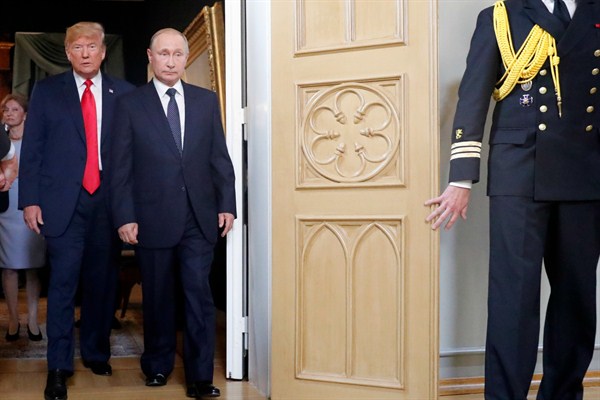The Finnish government took a significant gamble when it agreed to host today’s Helsinki summit between Vladimir Putin and Donald Trump. The Russian president’s meeting with his American counterpart threw U.S. and European analysts into a panic. Even relatively optimistic commentators predicted that the event would be a waste of time. Pessimists feared Putin would use it to extract major concessions from Trump on Syria or Ukraine. Finland has risked being associated with a debacle over which, despite being a good host, it has no substantive control. Why has it done so?
Many observers have assumed that the Finns simply hosted the summit out of habit. Western and Soviet-bloc diplomats regularly met in Helsinki during the Cold War. The 1975 “Helsinki Final Act,” a wide-ranging East-West agreement on security and human rights in Europe, helped pave the way for the slow decline of the Soviet Union and its Eastern European satellite states.
Helsinki, along with Vienna and Geneva, is thus a member of a small club of cities that are inevitably associated with a past era of great-power bargaining. All three have regained some of their old diplomatic glory in recent years. The Austrians and Swiss have shared the honors of hosting talks on the Iranian nuclear deal. Less happily, the United Nations has convened the Syrian government and opposition representatives for repeated discussions in Geneva.

